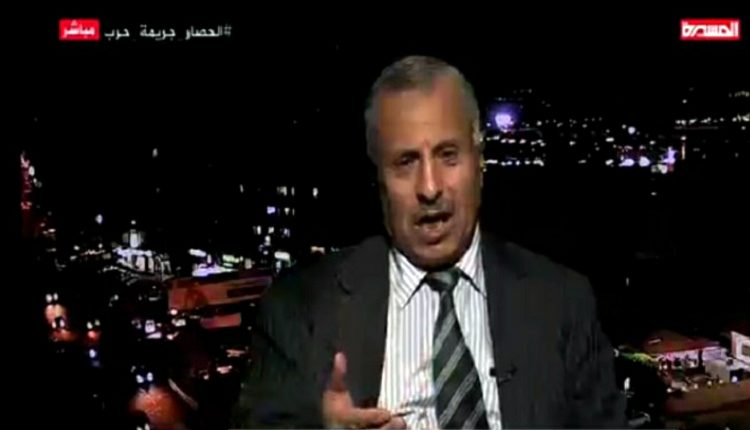SANAA, Dec. 23 (YPA) – A senior financial official in the National Salvation Government in the capital Sanaa on Sunday revealed the main goal of putting the “Hadi government” more printed editions of Yemeni currency not covered in the local market, stressing the effectiveness of the central bank’s measures in Sanaa.
“By flooding the local market with illegal currency, the government’s finance ministry is seeking to withdraw foreign exchange and, in turn, higher commodity prices,” said Dr. Ahmed Hajar, undersecretary of the finance ministry for the planning sector in the national salvation government, in a televised interview on Sunday night.
“The Saudi-led aggression forces disturbed by the central bank’s move as an indication of its effectiveness in the face of the enemy’s bet on the economic paper to put pressure on the home front,” he added.
The Central Bank of Yemen decided in the capital Sana’a decided to ban the circulation of currency printed by Hadi’s government , which is a crime harm the economy, and give those who hold it 30 days to replace it with approved banknotes or electronic riyals for those who wish.
The cabinet supported the actions of the Central Bank in Sanaa, and confirmed at a meeting chaired by Prime Minister Abdel Aziz Bin Habtoor “compliance with the council’s decision No. (57) for 2018 on the prohibition of the circulation of illegal currency and criminalizing those who deal with it.”
During the meeting on Sunday that it “supports the central bank’s actions and constructive efforts to reduce the impact of the illegal currency on the national economy and its disastrous effects on the exchange rate and the rise in commodity prices”.
On the other hand, the cabinet assured citizens that “their full rights are reserved and included in the legal procedures announced by the Central Bank, which ensured that citizens are protected from the negative impact of the illegal currency by compensating them in the official currency of the state”.
It also condemned “the use of the coalition of aggression to print currency as a tool of war against the Yemeni people in its continuing attempts to leave it after its military and security failures.”The cabinet held “the United Nations, the Security Council, IMF, and mercenary government responsible for all the consequences”.
It called on the United Nations, the Security Council and the International Monetary Fund to “play their part in stopping the deterioration of the national currency and fulfilling their previously announced pledges to stop printing the currency, which they said is inflationary and has direct and catastrophic damage to the economy and the standard of living of citizens”.
“What the Occupied Bank of Aden has printed for five years is more than it has been printed in more than 30 years,” said Dr. Rashid Abu al-Luhum, governor of the Central Bank of Sanaa. “The illegal currency was exchanged for more than 900 citizens in 24 different provinces in just one working day,” he added.
E.M


